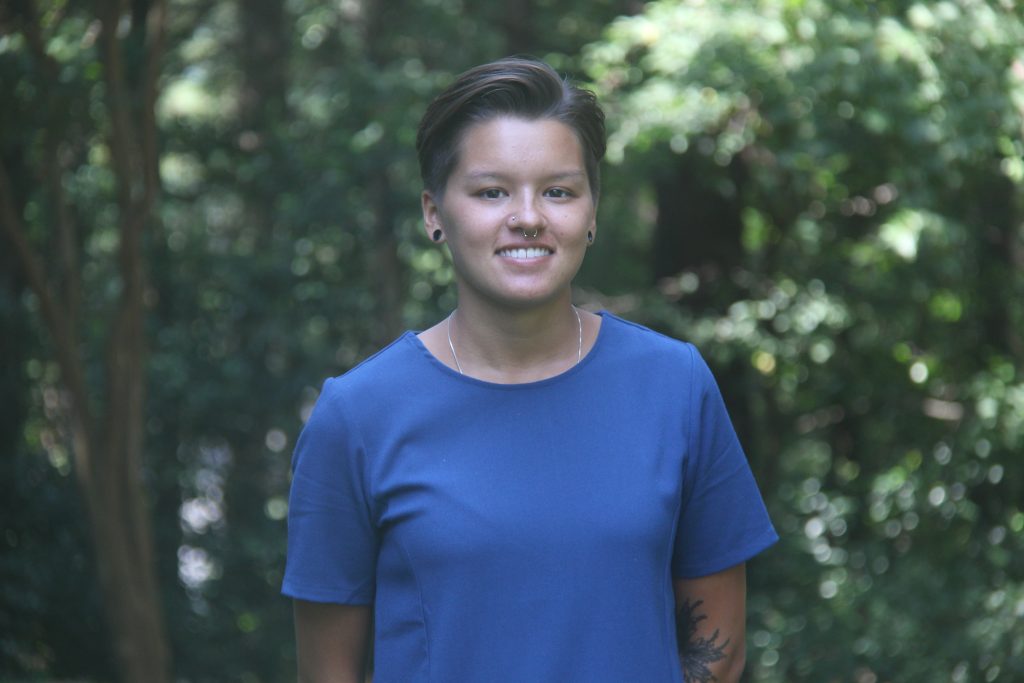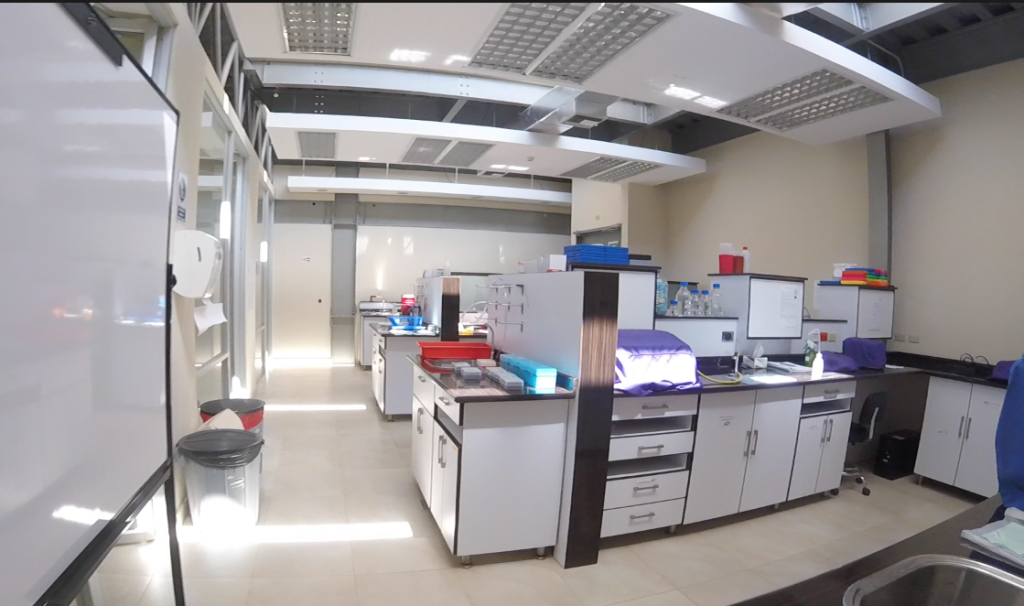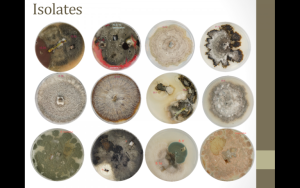Postcard from the Field: Galapagos – Tia Decker ’17
April 13, 2017
Name: Tia Decker
Major: Environmental Studies
Expected graduation date: May 2017
Hometown: Jacksonville, NC
Why did you want to go to the Galapagos Field Site?
I wanted to go to the Galapagos Field Site because not only did I know it would be a great educational experience, but I also thought it would be a great cultural experience. I hadn’t been out of the U.S. before so I wanted to immerse myself into a foreign culture and to have the experience of living and working with people from Ecuador – who just so happened to be some of the top professors/researchers in South America. I knew the main goal of going to this field site was to meet educational requirements for my major and conduct research, but it was also about stepping out of my comfort zone and testing myself on my ability to work with professionals from a different country. Going to the GI is also something that is not guaranteed to happen again and so to be able to say that I spent 5 months on one of the most incredible, biologically unique places on the Earth is pretty amazing!
What specifically are you doing in the Galapagos?
Before arriving to Ecuador you pick a “track” of courses that you want to take while you are in Quito/Galapagos; from that track, the first course is taken in Quito, and the rest are taken in the Galapagos. Each course in the GI is taken separately over a period of 3-4 weeks while you are there and the last 6 weeks you spend conducting research either on the mainland or in the GI (depending on what research topic you choose). Class times do vary from day-to-day based on whether there is a field trip and also who your professor is. However, most of the time class is held Mon-Fri from 9am-12pm. Yes, the courses you take in the GI are easier than they would be here at UNC, but it’s still important to pay attention to due dates and the quality of the work you turn in to your professor. Most of the professors are highly respected in their field so it’s important to respect their teaching efforts and produce high quality work.
After classes end in May, all the other students leave and only UNC students are there – except for the weekly shipment of tourists! Depending on what your research topic is, you may start your research while you are still taking classes (highly recommended), but the last 6 weeks is when the pace starts to quicken and you really have to work hard in the field to collect the data you need to analyze and discuss for your project presentation. Hopefully during the 5 weeks on the GI you are contacted regularly or even visited by your project mentor – this is good because you can ask questions about the project and get advice. After the 5th week of being in the GI, you return to Quito where you make any final conclusions/meet with your mentor. You also should probably be finished with your final paper and starting the presentation that you will have at the end of the week right before you leave.
Specifically, my research is finding a biological control agent (in this case a endemic pathogenic fungus) to eventually be used against the extremely invasive raspberry plant that’s found on the islands. First I had to collect plant samples from  28 sites around the island that showed signs of infection. Then I sterilized different pieces of each plant fragment to rid it of bacteria (fungi survived), then grew the fungi on Petri dishes. Once the initial fungi samples grew, I would replicate them in more Petri dishes in order to purify each fungi sample. Then using microscopy I identified as many fungi species that I could and recorded them. Lastly, I tested each fungi sample that I had grown for pathogenicity by conducting bioassays where I essentially infected healthy raspberry plants with the fungi to see if it’s presence would cause a physiological response in the plant due to the presence of a pathogen (the fungi).
28 sites around the island that showed signs of infection. Then I sterilized different pieces of each plant fragment to rid it of bacteria (fungi survived), then grew the fungi on Petri dishes. Once the initial fungi samples grew, I would replicate them in more Petri dishes in order to purify each fungi sample. Then using microscopy I identified as many fungi species that I could and recorded them. Lastly, I tested each fungi sample that I had grown for pathogenicity by conducting bioassays where I essentially infected healthy raspberry plants with the fungi to see if it’s presence would cause a physiological response in the plant due to the presence of a pathogen (the fungi).
What has been the most impactful experience you’ve had while in the Galapagos?
The most impactful experience I had would be a tie between building a relationship with my host mom (given the huge language barrier) and getting to basically conduct my own research. The research wasn’t officially mine, but I spent many hours in the lab and field working really hard to find results that could be contributed to the research. Beforehand I didn’t realize how much work it really was going to be, but I learned a lot about myself and the work I’m capable of completing.
What is the biggest lesson you’ve taken away from your experience in the Galapagos?
The biggest lesson I’ve taken from this experience is that for some people in some countries it’s not all about getting good grades but rather enjoying the experience and deeply understanding the work you’re doing and why you’re doing it. Not that your work/study shouldn’t be taken seriously, but I feel that at UNC success is measured by grades, GPA, all the technical stuff. Whereas in Ecuador, all of my professors seemed to want us to learn through experience and to grasp academic concepts by the interactions we had outside of the classroom.
Do you have any advice for other students who are considering going to the Galapagos Field Site?
Be VERY flexible with your time and what you expect from your host family! Be open to the idea of “Ecuadorian time” and remember that you’re on an island where food items are expensive to import and meals tend to be repetitive! Communicate with your host family on things you can/can’t eat, but don’t get sassy when you get rice at every meal…it’s part of the culture. Cilantro and lemon is on pretty much everything too. The other most important thing I think you should be doing while in the GI is having fun and living! Work is important but it’s also good to explore all the islands and build relationships with people (locals, host family) because that is what will really make your time in the GI memorable.
